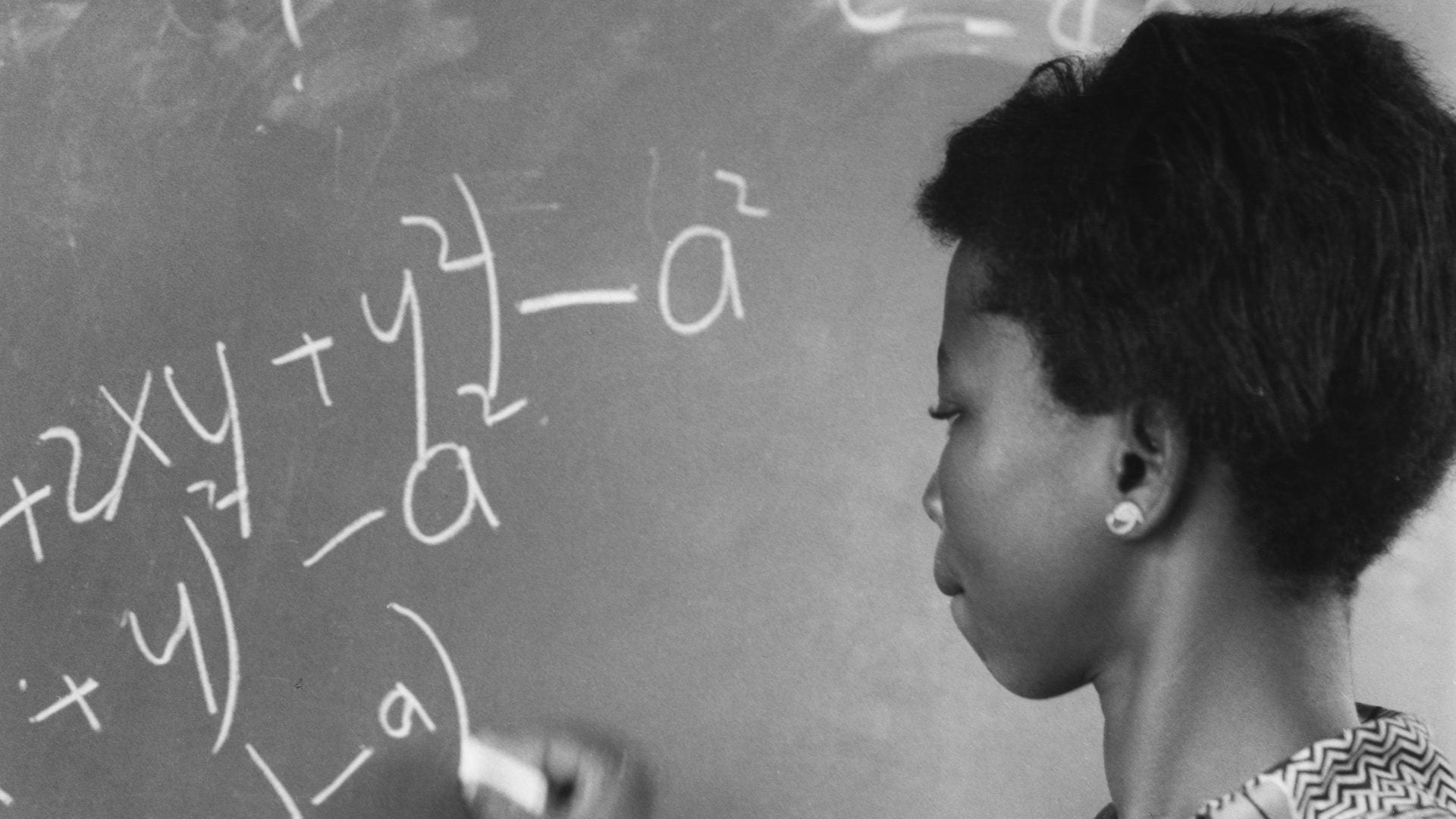
Every year, Pi Day is celebrated on March 14. It’s the celebration of the mathematical sign pi, and the date is symbolic because (3.14) signifies the first three digits of pi.
This year ESSENCE is celebrating by honoring Martha Euphemia Lofton Hayes, the first Black woman to earn a PhD in Mathematics.
Haynes was born on September 11, 1890, in Washington, D.C., just 25 years after the Civil War had ended. Haynes preferred to go by her middle name, Euphemia, as opposed to Martha. Her mother worked as a kindergarten teacher, and her father, William Lofton, was a dentist. Lofton “was a member of the Washington ‘Black 400,’ a small group of fewer than one hundred families in Washington, D.C., who were considered aristocrats of color,” according to American Mathematical Society.
The 1900 census shows that by the time she was nine, Haynes was residing in her aunt and uncle’s home along with her mother, great-grandmother, brother, and cousin. According to archival records, despite some family struggles, they remained close.
In 1907, Haynes graduated from M Street high school. During her valedictorian speech, she stated “For a person of intelligence is well equipped to solve the problems of life…We must have some defined aim in life and be able to fill competently that position in which we may find ourselves…Let each defeat be a source of a new endeavor and each victory the strengthening of our spirit of gratitude and charity towards the unsuccessful.”
Haynes words would be predictive of her future accomplishments. Two years later, she graduated from Miner Normal School in 1909 and then from Smith College, with a bachelor’s degree in mathematics in 1914.
For Haynes, the year 1930 was eventful. She earned a master’s degree in education from the University of Chicago. “Her thesis studied the difficulty of tests in helping understand the causes and variations in student scores.” Haynes’ research “discussed the tendencies to measure student progress as opposed to simply classifying students.”
“That same year, she founded the math department at Miner Teachers College (later renamed the University of the District of Columbia), which focused on training African-American teachers.” In addition, Haynes also became a Miner Teachers College professor in 1930, and she would maintain her post as head of the math department there for almost 30 years.
On top of her numerous endeavors, Haynes continued to pursue her mathematics studies. In 1943, Haynes made history when she graduated from Catholic University of America (CUA) with her doctorate degree in mathematics becoming the first Black woman to earn her PhD. Her dissertation under the supervision of Professor Aubrey Edward Landry was entitled, “The Determination of Sets of Independent Conditions Characterizing Certain Special Cases of Symmetric Correspondences.”
Subsequently, Haynes continued teaching math at numerous public high schools in Washington, D.C. and continuing to serve as a college professor.
Haynes became a member of the D.C. school board in 1960. Three years later, she spoke out against the use of IQ tests, drawing on the work of her master’s thesis, which was “central to her advocacy in desegregating DC Public Schools and ending the system of tracking, a system that placed African-American students on one path (academic or vocational).”
By 1965, administrators, educational experts, and parents successfully petitioned the school system, which led to an investigation which found evidence of discrimination: “most students on the honors track were white and students on the basic track were Black.” A year later, after Dr. Haynes won her election, becoming president of the school board, she “immediately dismantled the tracking system, replacing it with new classroom methods of assessment.”
The brilliant activist, educator, and mathematician died at 90, having paved the way for future Black women in STEM.
In 2018, 75 years after Haynes received her doctorate degree, CUA established the Euphemia Lofton Haynes Award, which is awarded “to a junior mathematics major who has demonstrated excellence and promise in their study of mathematics.”